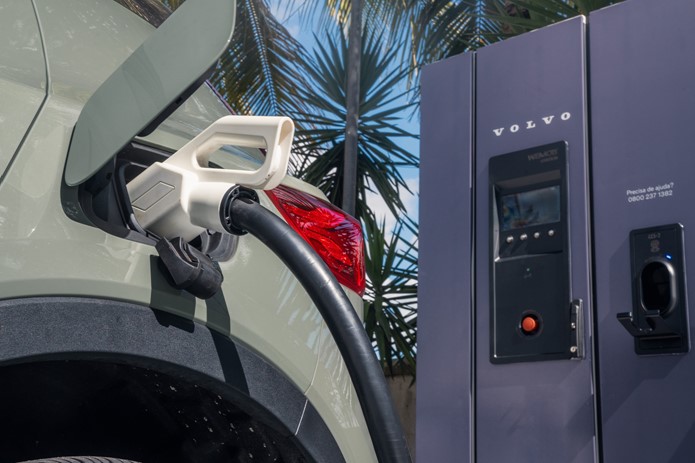A 101-unit net will cover all country regions


By Redação AutoIndústria | 9/18/23 | Translated by Jorge Meditsch
Volvo Car announced a R$ 50 million investment to install 73 new electro stations in Brazil, part of a R$ 70 million and 101 charging points project started in 2021 to cover all country regions.
“With this investment, we reassure our commitment to sustainability, carbon emissions reduction and the construction of a cleaner and safer future for all Brazilians”, said Marcelo Godoy, Finances director of Volvo Car Latin America and Charging Infrastructure Operation in Brazil.
Ten electro stations are already operating in São Paulo, Santa Catarina, Rio de Janeiro and Minas Gerais, and another 18 are being installed.
According to Godoy, the partner selection process was significantly improved, with more agility to expand the charging stations net:
“Since our journey toward Brazilian road electrification began, we committed to provide more safety and tranquility to electric vehicle owners. After a judicious analysis, we decided to accelerate the project instead of conducting it in phases as we were doing.”
The Sweden manufacturer’s partners in the project are WEG, Enel X, Vibra and, now, Carrefour Property, which should accelerate the installation of more than 30 electro stations in Carrefour Brasil and Sam’s Club galleries.
“We are directing our focus to the consumer experience in our galleries”, said Fernanda Rodrigues, Carrefour Property Brasil’s director. “This partnership happens in perfect synergy with this intention and is aligned to our incentive policy to sustainability and care with the planet we live on and the air we breathe”.
A partir de kits CKD, serão fabricados três modelos: X-Cape 650cc, Seiemezzo 650cc e Calibro…
Gáston Diaz Perez, CEO e presidente na América Latina, revela faturamento de R$ 10,8 bilhões…
Executivo será responsável pela Divisão Mercado Industrial
A primeira rodada de avaliação contará com 27 modelos, um de cada montadora. Entre eles,…
"Trabalhamos em diversas frentes para tornar a empresa cada vez mais forte e resiliente”, diz…
Ritmo das atividades acompanha momento positivo do mercado, que cresceu 77% no período